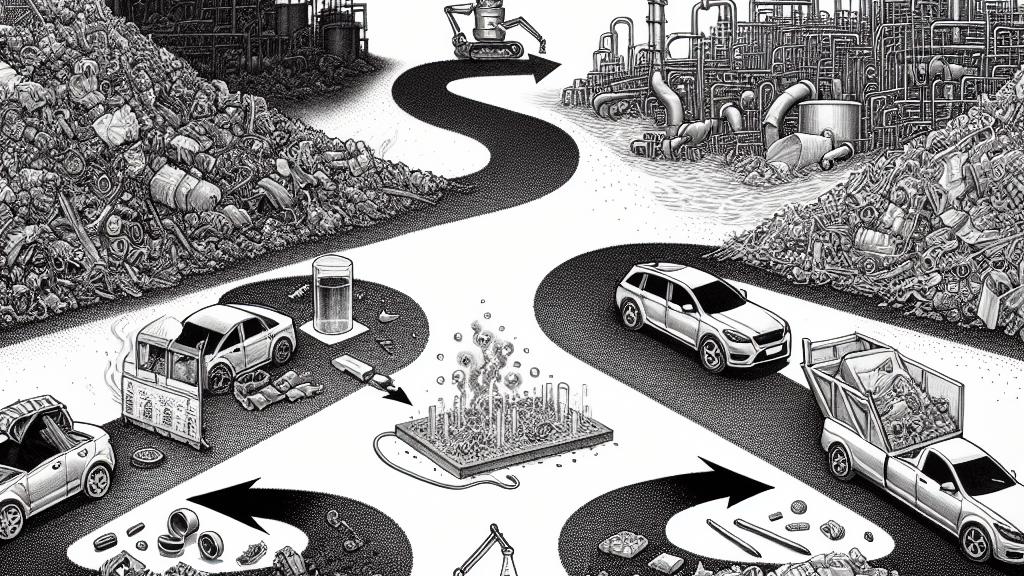How Polymer Editing Can Transform Waste into Better Plastics
Overview
- Polymer editing is an innovative technology that expertly upcycles plastic waste into valuable materials.
- Pioneering chemists at Oak Ridge National Laboratory are leading the charge in this environmental revolution.
- This groundbreaking method aims to significantly alleviate the environmental crisis caused by plastic pollution.

Revolutionizing Plastic Waste Management
Imagine a world where plastic waste is no longer a burden but a resource. In the United States, this vision is becoming a reality thanks to the remarkable efforts of scientists at Oak Ridge National Laboratory (ORNL). They have developed an extraordinary technique called polymer editing, which could genuinely change the landscape of how we address the alarming rate of plastic waste production. Did you know that approximately 450 million tons of plastic are discarded each year, with a staggering 91% ending up in landfills or oceans? This shocking statistic highlights the urgent need for effective solutions. Instead of resigning ourselves to the traditional recycling methods that often produce lower-quality materials, polymer editing breathes new life into discarded plastics, transforming them into high-performance materials suitable for various applications—from car parts to household items. It’s a thrilling step forward in the battle against plastic pollution.
The Science Behind Polymer Editing
Now, let’s delve into the fascinating science of polymer editing. The process begins by dissolving unwanted plastics—think of items like old rubber tires or broken plastic toys—in a specially chosen solvent. Next, researchers introduce a catalyst known as ruthenium that acts like a skilled conductor in an orchestra, coordinating complex chemical reactions that would otherwise be difficult to achieve. Picture this: it's similar to how you might rearrange furniture to create a better flow in your living space. The scientists reconfigure the molecular structure of the plastics to unlock new potential. For example, the soft rubber from tires can be reborn as robust components for electronics or durable parts for kitchen equipment. This revamping of plastics not only enhances their properties but also provides an exciting new use for materials that would otherwise be discarded.
Environmental Impact and Future Prospects
The environmental implications of this technology are staggering! With plastic waste reaching alarming levels around the globe, only a tiny fraction being recycled, polymer editing emerges as a paradigm shift. Imagine if every bit of plastic waste could be transformed into high-quality materials rather than polluting our planet. This innovative method not only targets the reduction of waste but also presents incredible economic opportunities by converting trash into treasure. If widely adopted, polymer editing could revolutionize our approach to pollution and waste management by establishing a sustainable cycle where materials are continually repurposed. This isn’t just about scientific advancement; it’s about rethinking our relationship with plastic and paving the way to a sustainable future where our planet is cleaner, greener, and healthier for generations to come!

Loading...